Graduate Institute
PhD scholarships for eight PhD candidates
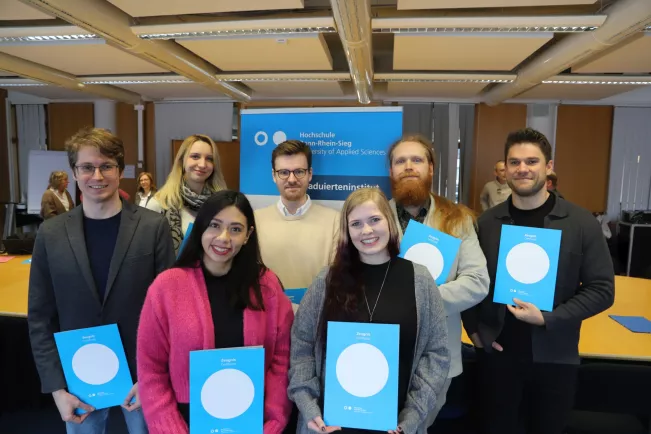
The 2023 scholarship holders
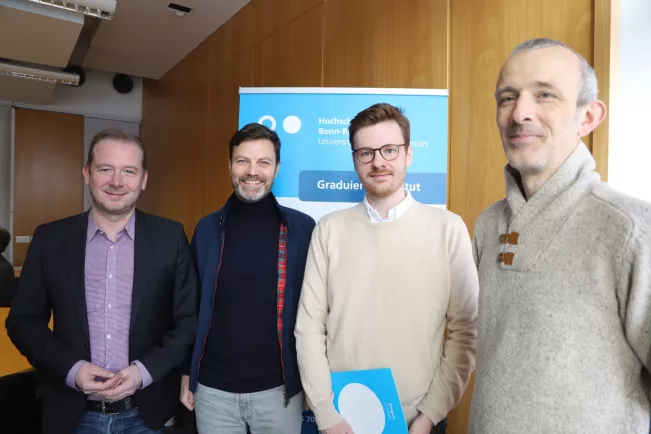
Doctoral scholarship from the Department of Computer Science
Computer scientist Martin Pluisch is working on augmented reality environments. For his PhD, he is researching the use of stimuli via various sensory channels, for example vibrations or sounds, to provide users of AR glasses with additional information alongside what they are seeing. The dynamic environment as well as technical and human limitations are challenging.
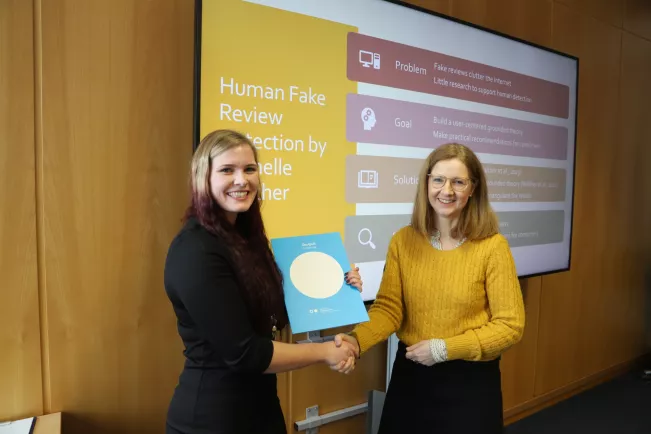
Doctoral scholarship from the Equal Opportunities Office
Psychologist Michelle Walther is researching people's ability to recognize fake customer reviews on the internet in an online shopping context. She wants to use interviews and experiments to come up with specific recommendations that she can give to consumers.
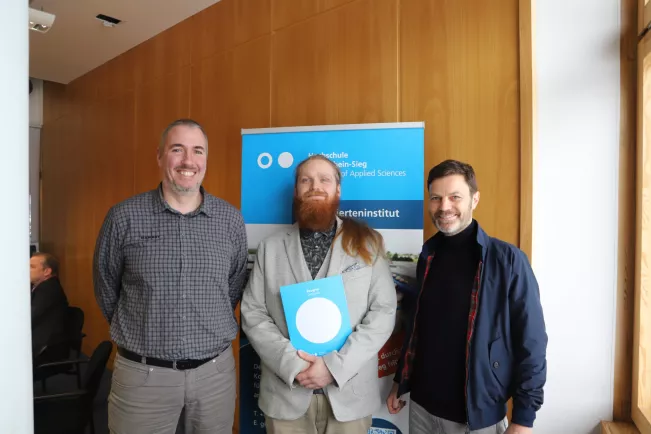
Doctoral scholarship from the Institute for Security Research (ISF)
As a computer scientist, Bastian Stahl is investigating how he can improve the reliability and safety of 3D time-of-flight cameras. These camera systems transmit a modulated light signal and use the phase shift between the transmitted and received signal in the individual pixels to generate a depth image. They are used in the workplace to improve occupational safety and are intended to prevent accidents in the interaction between man and machine.
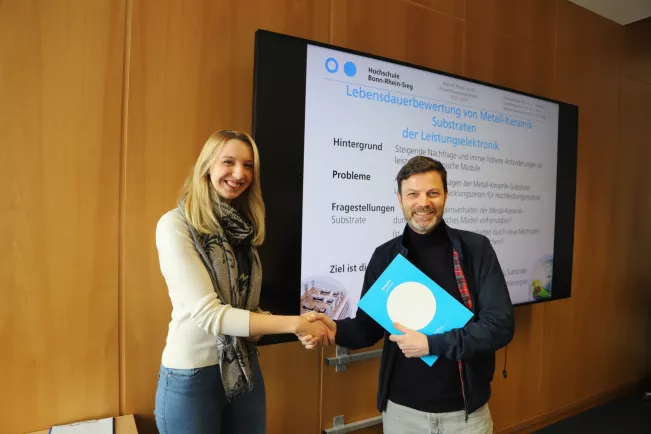
Doctoral scholarship from the Department of Natural Sciences
In her dissertation, chemist Hanna Rohde evaluates the service life of metal-ceramic substrates for power electronics. These are used, for example, in the automotive industry, in aviation and in the energy sector. As a materials scientist, she wants to develop a numerical model in order to be able to calculate and predict the failure of the components. This should speed up the testing and approval of the modules.
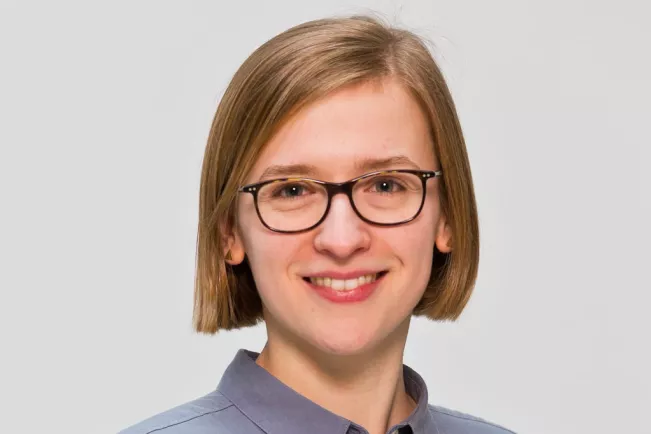
Scholarship of the Department of Social Policy and Social Security
As a cultural scientist, Friederike Windhofer takes a closer look at the climate justice movement. She compares different groups such as Fridays For Future, Extinction Rebellion and The Last Generation and looks for reasons for the choice of different forms of protest, from moderate to confrontational.
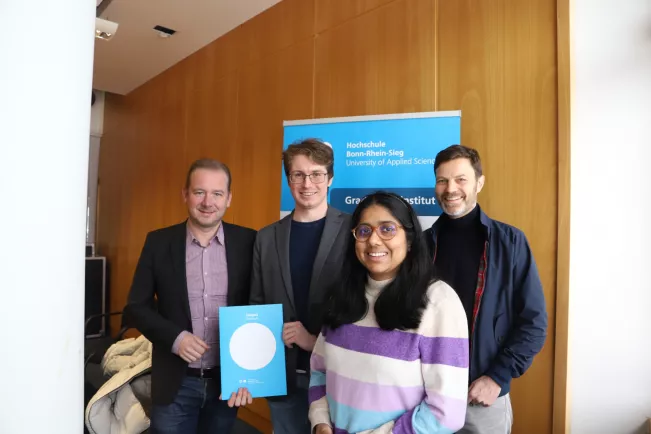
Scholarship from the Institute for Artificial Intelligence and Autonomous Systems (A2S)
Michael Stolarz is working on assistance robots that are used in the social sector, for example in care for the elderly or child therapy. These robots must first learn to react appropriately to human behavior and facial expressions. To do this, the computer scientist uses Interactive Reinforcement Learning (IRL) in simulations and user studies so that the robot learns from both the carer and the person being cared for.
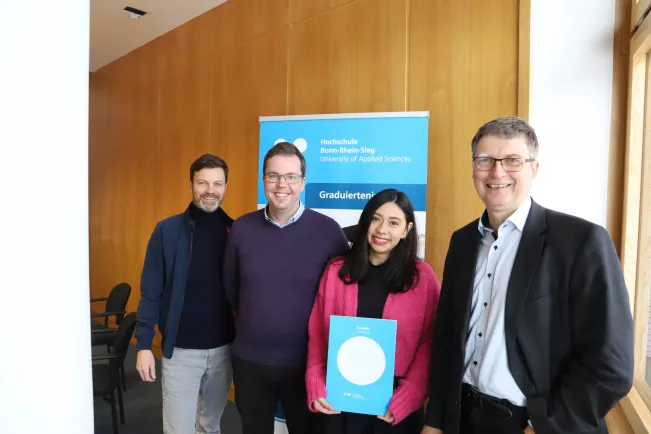
Scholarship from the Graduate Institute (1)
Physician and natural scientist Karen Luján uses machine learning to predict hereditary high blood pressure. The epithelial sodium channel is located in the epithelial cells of the kidney. This structure exists in different genetic variants and has an influence on salt uptake and salt-dependent high blood pressure. Luján wants to determine this influence more precisely with the help of artificial intelligence.
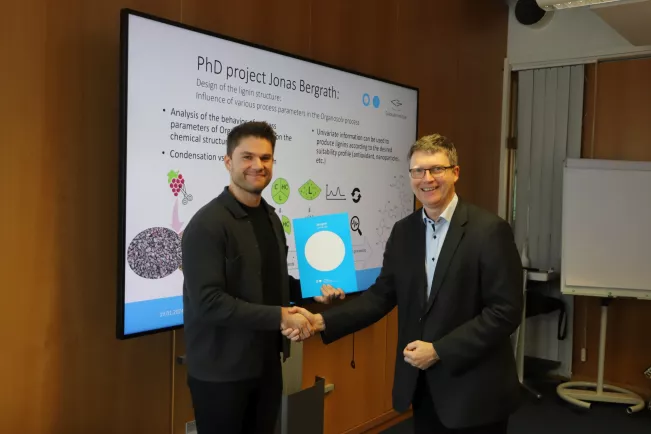
Scholarship from the Graduate Institute (2)
Chemist Jonas Bergrath is investigating the Organosolv process, which is used to extract the substance lignin from renewable raw materials such as wood or pomace waste from viticulture. The lignin is intended to be used as a sustainable alternative to fossil resources . Bergrath wants to know whether the extraction process can be specifically varied in order to optimize the chemical structure of the lignin for different fields of application.
More photos of the event
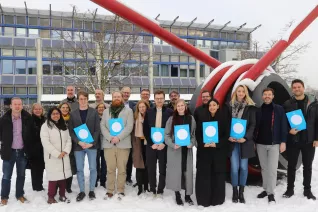
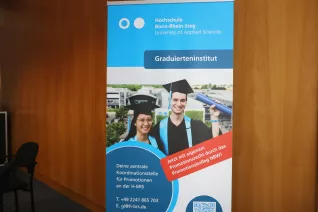
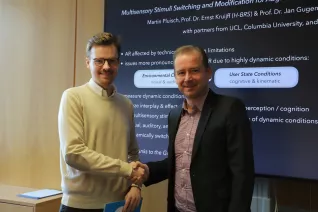
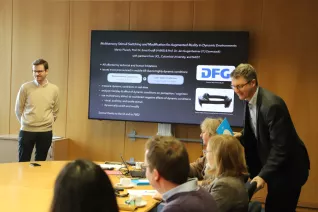
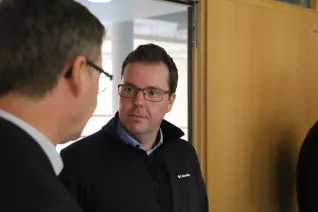
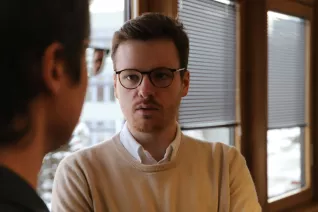
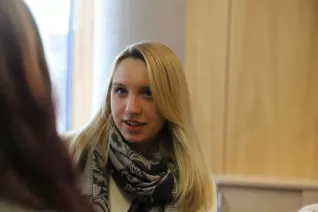
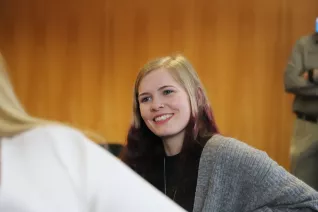
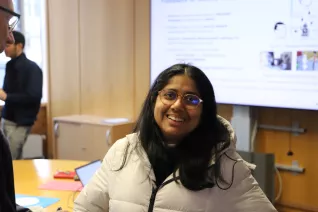
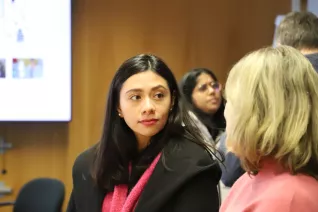
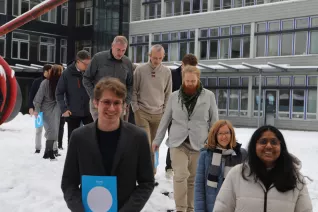
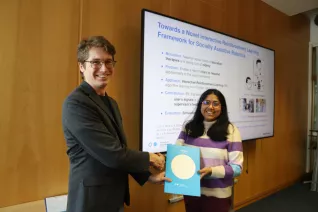
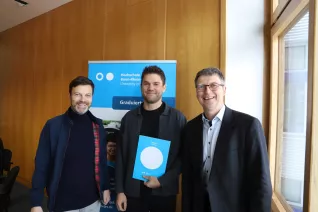
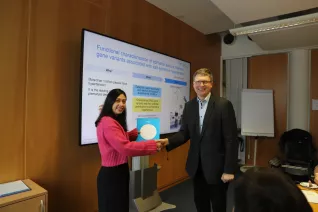
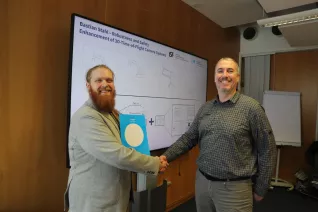
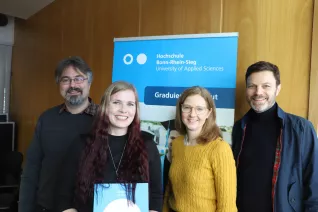
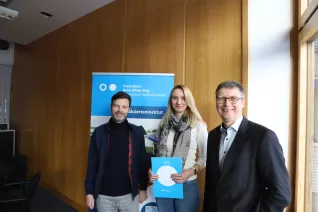
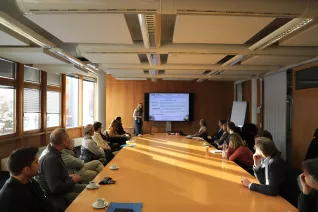
Fotos: Juri Küstenmacher and Martin Schulz
PhD Scholarships 2024
Anlaufstellen
Graduierteninstitut: Contact
Campus
Sankt Augustin
Room
F 427 , F 425, F 423
Opening hours
Mon-Fr 9.00 am-1.00 pm call us, send an e-mail or make an appointment for individual counselingfor

















